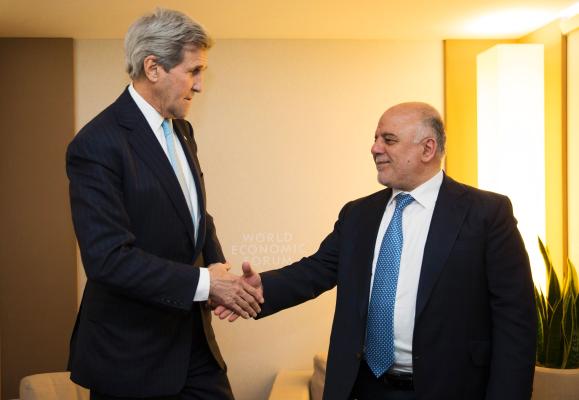In an interview published in this newspaper on Saturday, the Iraqi Defence Minister Khaled Al-Obaidi said that Iraq’s current government “has announced its political favouritism by opening up to all Arab brothers without exceptions”. The minister specifically talked about Saudi Arabia saying that it is “an important country that has a place in the Arab, Islamic, regional and international community. We need to help it, and if we received an invitation to visit the kingdom, we are ready to respond to it and meet our Saudi brothers and leaders. Certainly, Saudi’s cooperation with us will have a significant impact on the fight against ISIS”.
Of course, the minister’s comments are considered to be positive and a source of happiness to any prudent person except that Reuters news agency yesterday published news that talked about what it describes as the “violent” reactions of Shiite Iraqi legislators in response to statements by the Saudi ambassador to Iraq Thamer Al-Sabhan who was quoted as saying on Sumaria Iraqi television channel that Hashd Al-Shabi, an alliance of Shiite armed groups supported by Iran to fight ISIS, must leave fighting ISIS to the army and the official security forces so as to avoid an escalation in sectarian tensions.
Following the Saudi ambassador’s statement, some Shiite Iraqi representatives issued a number of violent and extreme statements the most notable of which was a demand by Awatef Nima, MP from the State of Law bloc, to “immediately expel the Saudi ambassador from Iraq to teach him a lesson in respecting the country which is hosting him, and in the event that he stays, he will face unpleasant consequences”. We do not know whether she meant attacks on the Saudi embassy in Iraq like the brutal attacks on the Saudi embassy in Iran. What is certain is that these emotional, sectarian statements should be taken seriously. Are the statements of the ambassador considered unacceptable whilst the Iraqi Prime Minister’s statements about the recent executions of terrorists in Saudi Arabia acceptable?
It is clear that in Iraq there are those who want to destroy any Iraqi-Arab rapprochement, especially with Saudi Arabia and the beneficiary of all this is Iran. It is therefore necessary that there be Saudi-Iraqi agreement despite all of these statements and that Iraq is not left to the Iranians and extremists. Intervention in Iraqi internal matters and instant responses are not what is required here. Rather, what is needed is more communication, denying extremists opportunity and diminishing the chances of destroying Saudi-Iraqi relations thereby establishing competent authority in Baghdad.
